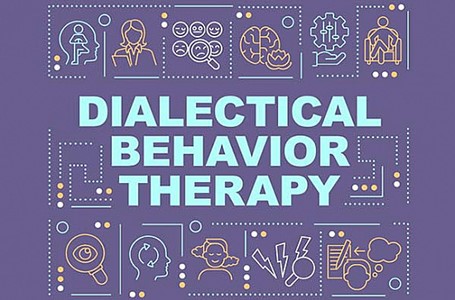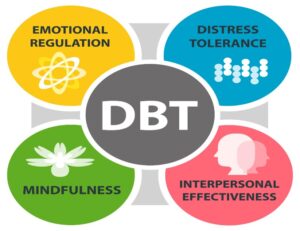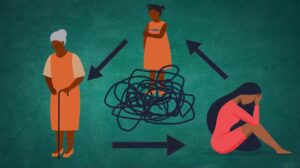Dialectical Behavior therapy training came into existence due to Cognitive Behavior therapy failing to do its part in certain areas. DBT was developed by Dr. Marsha Linehan, an American psychologist and her colleagues in the 1970s.
Dialectical Behavior therapy treatment deals with bringing people into living in the present moment and being able to deal with stress better. This helps those who are struggling with significant mental illnesses or hurdles that cannot be resolved overnight.
‘Dialectical’ refers to one’s ability to fight off opposite thoughts and accept the truth as it is. This takes place very delicately through several sessions beginning that ideally must lead one to gradually accepting one’s state. This takes a dig into attempting to validate an individual’s current state in accordance to the environment around.
This therapy modality has been scientifically proven to be effective as it drives emotional regulation and facilitates eventual recovery. This is typically applied for mental disorders that have on obstacle in dealing with intense emotions. These include the following:
- Borderline personality disorder
- Post traumatic stress disorder
- Depression
- Anxiety
- Eating disorders
- Suicidal ideations and behavior
- Self-harming tendencies
All these disorders stated above have one thing in common and that is that they all work on controlling a negative thought pattern that causes a downward spiral. This creates more tension and internal conflict as it is an unhealthy defensive behavior.
THE EFFECTIVENESS OF DIALECTICAL BEHAVIOR THERAPY TRAINING:
Dialectical Behavior therapy has evolved to become a modality wherein people learn to cope with their emotions and develop better relationships going forward.
The ultimate outcomes of this therapy treatment include the following:
- Acknowledging the present status: one is taught to get accustomed to the new feelings and thoughts being experienced so they can be redefined and this helps embrace the here and now over any other overwhelming past or future to slow things down.
- Execution of the change: This is to do with pitching in to finally bring out that change in behavior exhibited.
- Behavioral and cognitive changes: This draws on the covert and overt workings of an individual wherein they may be impacting the individual altogether to work on the faulty or irrational thought patterns that inevitably provoke or trigger the maladaptive behaviors as a result. Replacing the unhealthy thoughts and behaviors to more healthy and acceptable ones take time. However, implementation over time serves its purpose of being able to accomplish in walking past the obstacle.
- Built in resources used: Skills learnt through the sessions are adopted for future uses. This implies skills like tolerating distress, imbibing mindfulness and regulating emotions.
CORE USES OF DIALECTICAL BEHAVIOR THERAPY TRAINING:
- MINDFULNESS: Mindfulness is this state of intense focus where an individual is able to devote complete attention to the present. This takes into account the attention paid inward and outward, that is to the inner thoughts and feelings, perhaps, the abstract entities and stimuli from the external environment.
- TOLERATING DISTRESS: This is about developing a sense of coping ability to live through a crisis. This can be practiced actively by using techniques like healthy distractions, by weighing the pros and cons of not practicing this technique and so on.
- EMOTIONAL REGULATION: Being able to regulate emotions brings about an opportunity to redefine negative thoughts and feelings into positive ones.
HOW DOES DIALECTICAL BEHAVIOR THERAPY TRAINING WORK?
Phase I: The beginning is always with the most difficult stimuli, that is causing destructive behaviors like emotional or physical self-sabotage perhaps.
Phase II: The next stage is utilized to address the areas being affected, most importantly the personal and social relations.
Phase III: This is where self-identity and worth are defined and discussed more deeply wherein an individual’s sense of self-esteem interpersonal relationships are analyzed.
Phase IV: The last phase is dedicated to thriving for overall quality of life based on utilizing every available potential possible. This generates a sense of gratitude for recognizing what one has over what one does not and that eventually helps restore a sense of conviction in self.
Dialectical Behavior Therapy is an extremely effective therapeutic technique to tackle negative emotions and improve interpersonal relations. This acts as a catalyst in enabling a path to improve the overall quality of an individual through the subtle tweaks mentioned in this framework.
Why CoachForMind?
- Experienced Psychologists: We are a team of licensed RCI-registered clinical psychologists. Our team is well-experienced in various forms of therapy such as CBT, DBT, Narrative Therapy, and other therapeutic techniques such as Dialectical Behavior Therapy Treatment.
- Personalized Approach: We are dedicated to treating our clients in the best-suited way, carefully curated as per the client’s needs, and adhering to one-on-one, client-centered therapy.
- Scientific Techniques: Our treatment plans and therapeutic methods are based on highly researched scientific findings such as CBT, DBT, and Narrative Therapy among many other therapeutic techniques used in art therapy counseling.
- Quality service: We at CoachForMind ensure quality services in our treatment regime and therapeutic approaches. Our clients hold most value to us, so we ground our techniques in empathy while maintaining professionalism.
For more information, please visit our website or contact us directly at coachformind@gmail.com







